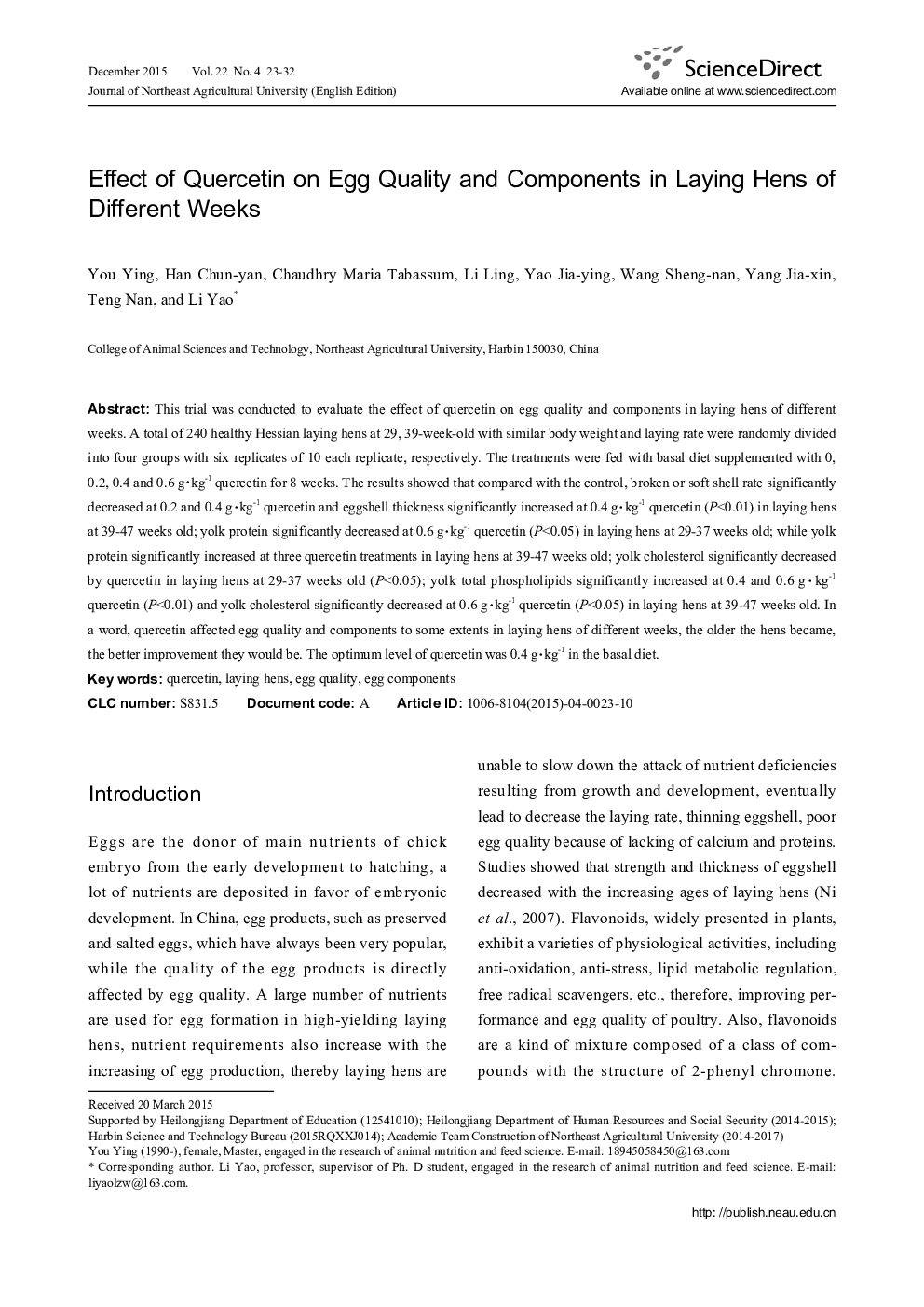| Article ID | Journal | Published Year | Pages | File Type |
|---|---|---|---|---|
| 4495292 | Journal of Northeast Agricultural University (English Edition) | 2015 | 10 Pages |
This trial was conducted to evaluate the effect of quercetin on egg quality and components in laying hens of different weeks. A total of 240 healthy Hessian laying hens at 29, 39-week-old with similar body weight and laying rate were randomly divided into four groups with six replicates of 10 each replicate, respectively. The treatments were fed with basal diet supplemented with 0, 0.2, 0.4 and 0.6 g · kg−1 quercetin for 8 weeks. The results showed that compared with the control, broken or soft shell rate significantly decreased at 0.2 and 0.4 g · kg−1 quercetin and eggshell thickness significantly increased at 0.4 g · kg−1 quercetin (P<0.01) in laying hens at 39-47 weeks old; yolk protein significantly decreased at 0.6 g · kg−1 quercetin (P<0.05) in laying hens at 29-37 weeks old; while yolk protein significantly increased at three quercetin treatments in laying hens at 39-47 weeks old; yolk cholesterol significantly decreased by quercetin in laying hens at 29-37 weeks old (P<0.05); yolk total phospholipids significantly increased at 0.4 and 0.6 g · kg−1 quercetin (P<0.01) and yolk cholesterol significantly decreased at 0.6 g · kg−1 quercetin (P<0.05) in laying hens at 39-47 weeks old. In a word, quercetin affected egg quality and components to some extents in laying hens of different weeks, the older the hens became, the better improvement they would be. The optimum level of quercetin was 0.4 g · kg−1 in the basal diet.
